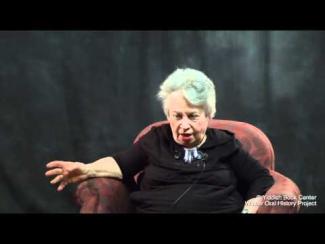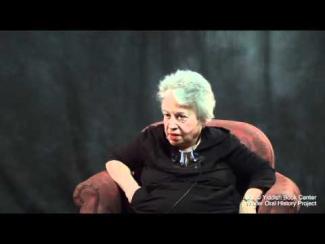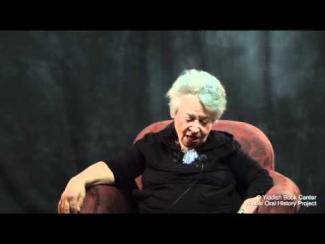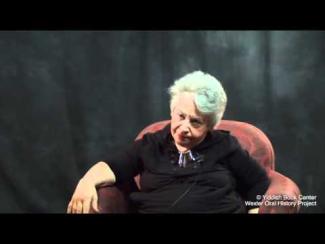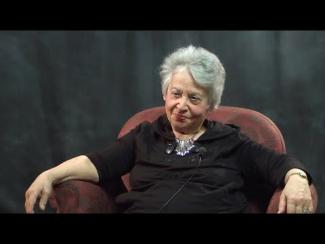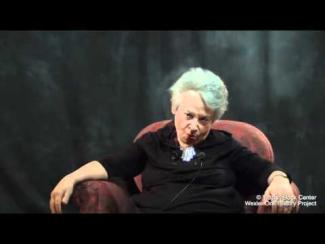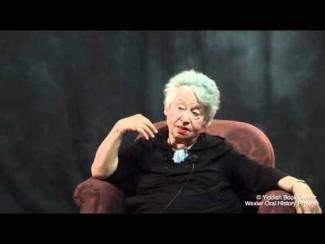The Yiddish Book Center's
Wexler Oral History Project
A growing collection of in-depth interviews with people of all ages and backgrounds, whose stories about the legacy and changing nature of Yiddish language and culture offer a rich and complex chronicle of Jewish identity.
Ingrid's Oral History
Ingrid, born in Germany before World War Two, was interviewed by Emma Morgenstern on October 17, 2010 at the Yiddish Book Center in Amherst, Massachusetts. Ingrid, an 81-year-old woman from Germany, started with her childhood in the 1930s, in a town called Eschwege. An only child, she grew up in a somewhat secular Jewish home, surrounded by more religious extended family. Ingrid always wanted to go to New York. She talked a bit about Kristallnacht in her town; her home was not destroyed but some of her friends' homes/businesses were. Ingrid was on a Kindertransport train to Sweden. She ended up in a Jewish home there because the Swedish parents had promised their youngest daughter a sister. The other two children in the family were eight and sixteen years older than Ingrid. She said it was a pleasant life and they gave her everything they needed and they truly saved her life. But she wanted to leave and always felt somewhat uncomfortable in the home/family. She moved to New York in her late teens, speaking no English. She got a job sewing there. She met her husband, Raymond, through a friend in New York. Her husband is British and Jewish. Ingrid talked about raising her children in New York, among other Jewish families, and how Judaism was important as a sort of backdrop to her life. Ingrid also discussed her different languages; she spoke German growing up, and learned Swedish very quickly when she arrived there (at age 9). The family she lived with in Sweden spoke Yiddish to her as well, and she would answer in Swedish. But when she arrived in America, not knowing English, she used Yiddish to communicate. Now she doesn't have people she can practice with, but she can understand/speak Yiddish pretty well, especially with her German language background. Ingrid talked about the fate of her parents: they were in a ghetto in Eschwege for a couple of years before they were sent to Theresienstadt (the famous model ghetto outside of Prague). Ingrid had contact with them before they were deported to Auschwitz in 1944, so she talks about their correspondence and how she has confirmed what happened to them ultimately. Ingrid made trips back to Germany and Sweden. She traveled all around Germany, including Eschwege, after her son visited. In the interview she discussed her interaction with Germans while there, and how no one claimed any kind of responsibility for what happened during the war in Eschwege. She also talks about how moving the services were in the synagogue there, which led to a discussion about the meaning of Judaism as a religion in her life. Basically, she thinks organized religion is hypocritical, even though she keeps a kosher home and celebrates the holidays. Ingrid also talked about leaving New York, the place she had loved so much and had wanted to live in for so long. She moved to Worcester, Massachusetts, which is near her children and where it is easier to drive.
This interview was conducted in English.
Ingrid was born in Echwege, Germany in 1929.

